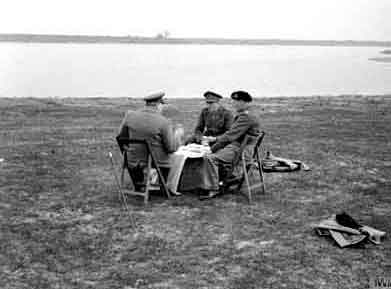 In February 1943, when the Allies defeated the Nazis in North Africa. To celebrate, Churchill flew to Tripoli for a victory parade. Enjoying the victory, Churchill, General Sir Bernard Montgomery, and other senior officers of the Eighth Army enjoyed a casual picnic...
In February 1943, when the Allies defeated the Nazis in North Africa. To celebrate, Churchill flew to Tripoli for a victory parade. Enjoying the victory, Churchill, General Sir Bernard Montgomery, and other senior officers of the Eighth Army enjoyed a casual picnic...
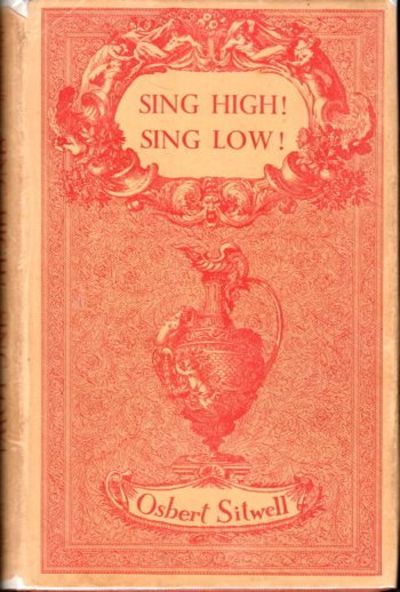 Sitwell considers picnic an ugly word. He starts the essay “Sing High! Sing Low!” without equivocating. Then, he finds picnics excellent opportunities to act as the noble savage in a controlled natural setting, a continuation of the perpetual picnic of Adam and Eve....
Sitwell considers picnic an ugly word. He starts the essay “Sing High! Sing Low!” without equivocating. Then, he finds picnics excellent opportunities to act as the noble savage in a controlled natural setting, a continuation of the perpetual picnic of Adam and Eve....
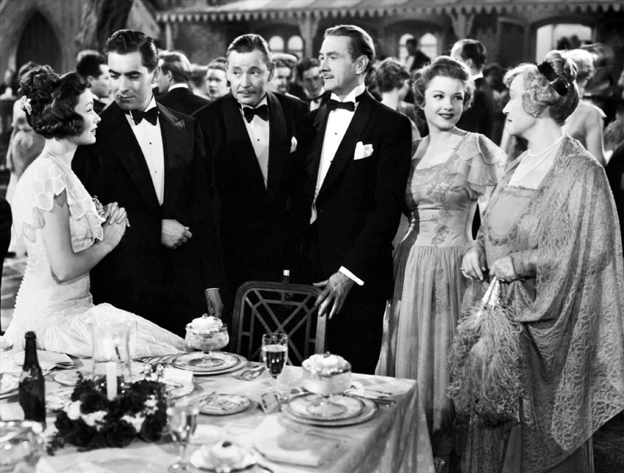 The lovers’ picnic in Maugham’s in The Razor’s Edge fails. The lovers never touch or kiss or even hold hands. Isabel Bradley is young and socially mercenary. But, her lover Larry Darrell wants to “loaf” to find himself. Isabel confronts...
The lovers’ picnic in Maugham’s in The Razor’s Edge fails. The lovers never touch or kiss or even hold hands. Isabel Bradley is young and socially mercenary. But, her lover Larry Darrell wants to “loaf” to find himself. Isabel confronts...
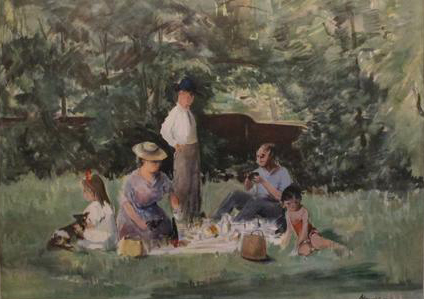 Moynihan’s Picnic was chosen as propaganda for the British Home Front in World War Two. As a war poster, it was displayed in factories and other facilities where war workers congregated as a reminder of the peace and happiness that would prevail when the war was...
Moynihan’s Picnic was chosen as propaganda for the British Home Front in World War Two. As a war poster, it was displayed in factories and other facilities where war workers congregated as a reminder of the peace and happiness that would prevail when the war was...
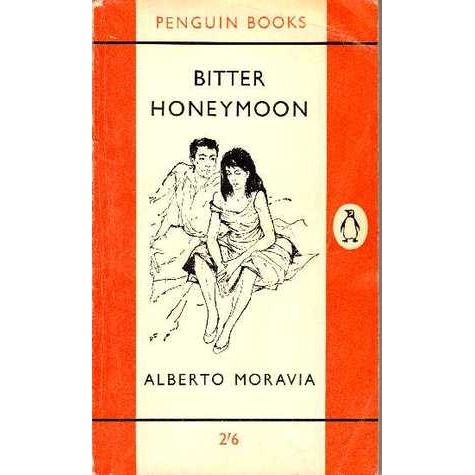 Moravia’s story’s “Back to the Sea” [Ritorno al mare] is about a picnic is without a shred of joy. It’s partly about gender relations and a metaphor for post-war Italy in the guise of a nightmare merénda, In the summer of 1945, Lorenzo,...
Moravia’s story’s “Back to the Sea” [Ritorno al mare] is about a picnic is without a shred of joy. It’s partly about gender relations and a metaphor for post-war Italy in the guise of a nightmare merénda, In the summer of 1945, Lorenzo,...
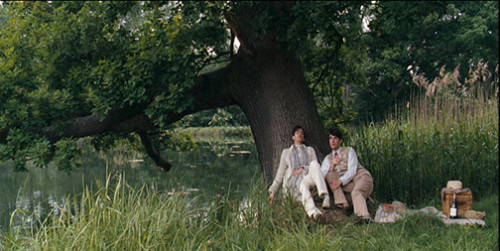 Slightly drunk, Sebastian Flyte looks up at the sky, remarking (mainly to himself), “Just the place to bury a crock of gold,” he says, “I should like to bury something precious in every place where I’ve been happy and then when I was old and ugly and miserable, I...
Slightly drunk, Sebastian Flyte looks up at the sky, remarking (mainly to himself), “Just the place to bury a crock of gold,” he says, “I should like to bury something precious in every place where I’ve been happy and then when I was old and ugly and miserable, I...
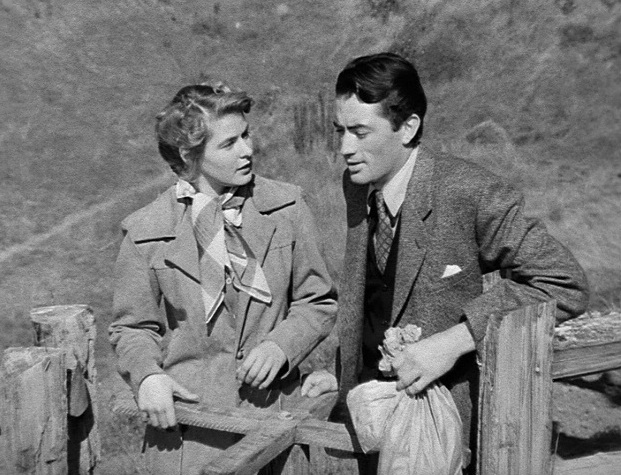 At the start of their picnic, Anthony Edwardes asks Constance Petersen about sandwiches. “Ham or liverwurst,” he asks. “Liverwurst,” Petersen silently replies with a knowing smile. Because Hitchcock cut the actual picnic from Spellbound, some...
At the start of their picnic, Anthony Edwardes asks Constance Petersen about sandwiches. “Ham or liverwurst,” he asks. “Liverwurst,” Petersen silently replies with a knowing smile. Because Hitchcock cut the actual picnic from Spellbound, some...
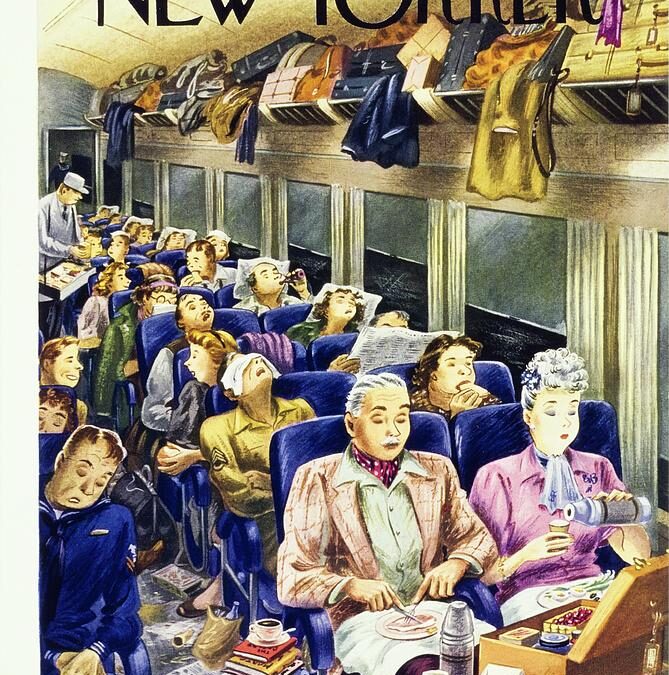 Alajálov commemorated the final year of World War II for The New Yorker (1945) magazine illustrating a coach of a passenger train filled with exhausted, sleeping soldiers and sailors, rumbling on in the dark, while a staid couple eats a picnic meal. The blasé couple...
Alajálov commemorated the final year of World War II for The New Yorker (1945) magazine illustrating a coach of a passenger train filled with exhausted, sleeping soldiers and sailors, rumbling on in the dark, while a staid couple eats a picnic meal. The blasé couple...
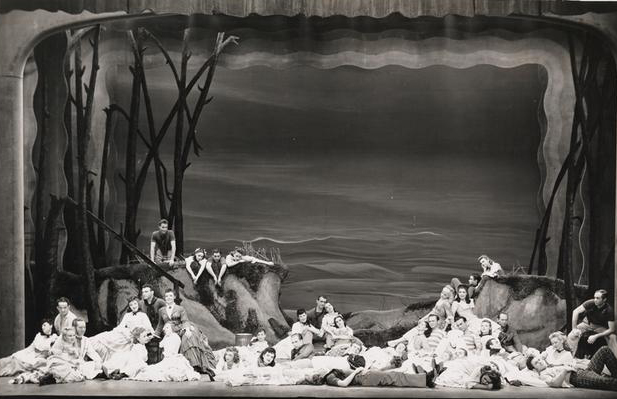 Rodgers and Hammerstein II’s joyous clambake is among the significant changes to Ferenc Molnár’s bleak Liliom. It’s a setup for the unhappiness that follows when Billy Bigelow botches a robbery and dies, leaving his beloved Julie Jordan pregnant and alone....
Rodgers and Hammerstein II’s joyous clambake is among the significant changes to Ferenc Molnár’s bleak Liliom. It’s a setup for the unhappiness that follows when Billy Bigelow botches a robbery and dies, leaving his beloved Julie Jordan pregnant and alone....
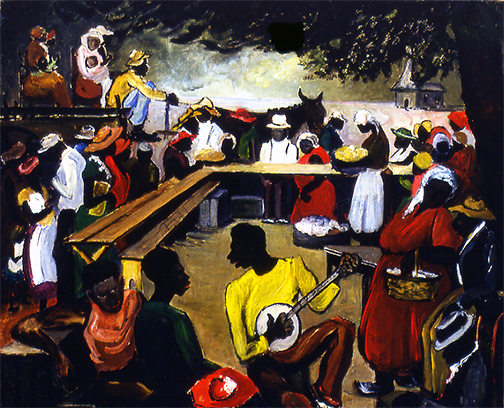 Jones’s Church Supper suggests the celebration of an African American picnic supper, sometimes called Dinner on the Grounds. An event like this is held in summer, usually on the first Sunday in August. It was always, and still is, a revival meeting. And while...
Jones’s Church Supper suggests the celebration of an African American picnic supper, sometimes called Dinner on the Grounds. An event like this is held in summer, usually on the first Sunday in August. It was always, and still is, a revival meeting. And while...











